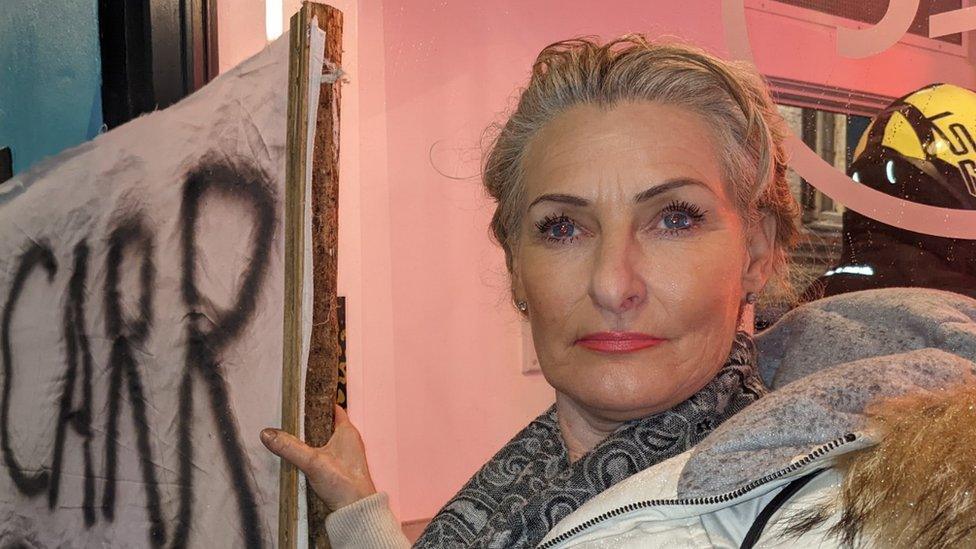Irish Travellers 'mental health crisis' driven by discrimination and deprivation
- Published
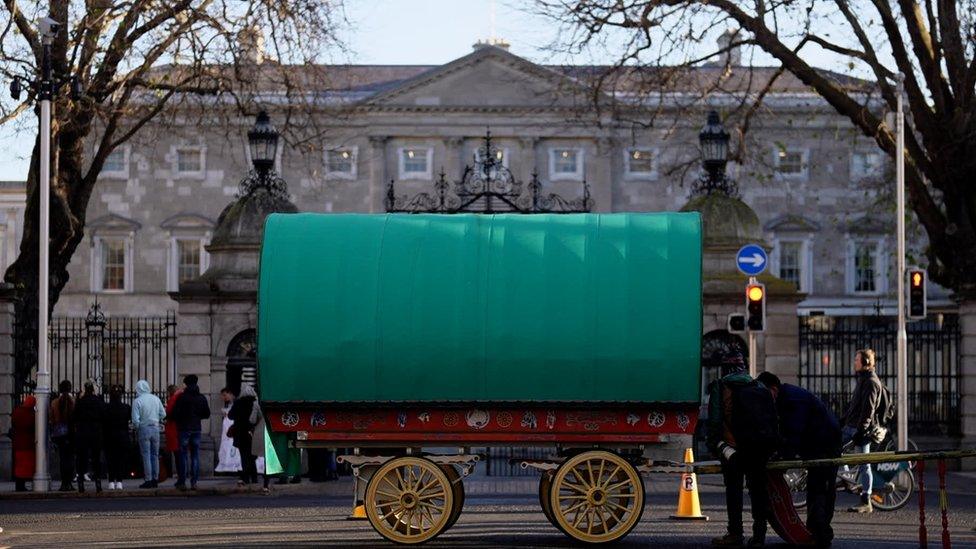
Members of the community say discrimination is causing a mental health crisis in their home country
Irish Travellers suffer some of the worst discrimination and poverty of any ethnic group in Europe, according to European Union research, external.
Members of the community have said it is causing a mental health crisis in their home country.
In 2021, an Irish parliamentary committee reported that 11% of Travellers in Ireland die by suicide, external.
It also said that life expectancy among men in the community is up to 15 years shorter than the wider population.
Rose Marie Maughan works with the Irish Travellers Movement, a national network of over 40 organisations.
"Our suicide rate is seven times higher than non-travellers," she said.
"Only 3% of us live past the age of 65 and 80% of us are unemployed.
"If that was any other community in Ireland, there would be international attention."
Irish Traveller Mags Casey lost 28 family members to suicide
Mags Casey is the chair of the Irish Travellers National Mental Health Network.
Nearly 30 members of her extended family have died by suicide in the last 10 years.
Her sister-in-law died in January 2012, followed two years later by her brother, who, Mags said, never recovered from the grief of losing his wife.
"The first suicide in our family, I thought the world ended," she said.
"I didn't know how to sit with four children and tell them your mother's dead, your mother's gone.
"The devastating effects it has on a family - addiction, family breakdown, a spiral of grief, young people not knowing how to deal with that grief."
'You're living two lives'
David Friel, a 24-year-old from County Donegal, is the first Traveller in the north-west of Ireland to achieve a masters degree.
Only 1% of Irish Travellers reach third-level education compared to over half of the general population.
David said that young Irish Travellers are struggling to balance their sense of identity with the demands of belonging in Irish society.
"It's trying to pass as a member of the settled population," he added.
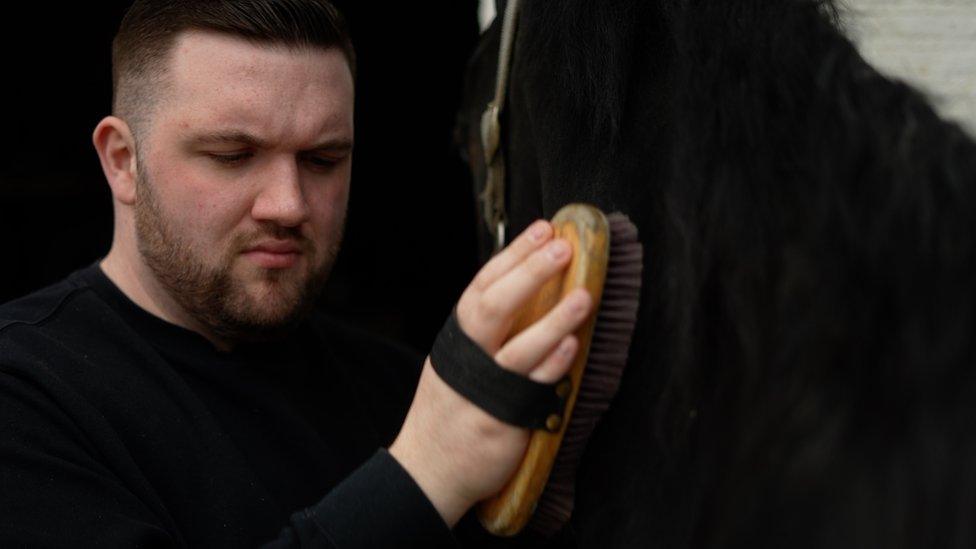
David's grandfather kept 100 horses but now he said the family are struggling to maintain one horse
"So, you're not being your true authentic self. That mentally is very, very difficult.
"You're living two lives, and no-one can maintain that."
Irish Travellers have a long history of nomadism, but activists have said laws have seen them forced to assimilate into the "settled" population and abandon traditions like living in caravans, keeping horses and specialist trades.
They have said their culture is being eroded.
David's grandfather kept 100 horses, but now, he said, the family is struggling to maintain one horse.
"The traditional means of employment have been obliterated - tinsmithing, or hawking, or gathering whelks or scrap," he explained.
"If you don't have employment, it's very difficult to sustain animals."
'Out of sight and out of mind'
Mags Casey highlighted the halting site where she grew up in Limerick.
A large wall has been built around the site separating it from the nearby housing estates.
"They deliberately put that wall around us to fence Travellers in completely," said Mags.
"Away from society. Out of sight and out of mind."
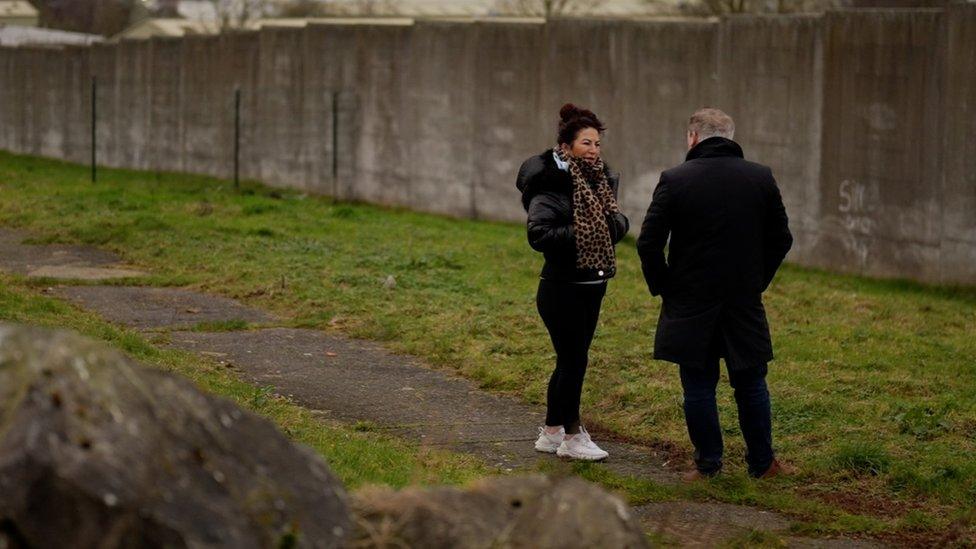
A large wall has been built around a halting site in Limerick, separating it from the nearby housing estates
Campaigners say Travellers have a distinct identity and that their culture is often misconstrued because they are not represented in many aspects of everyday life.
They claim that prejudice against Travellers has become socially acceptable and isn't challenged in the same way other forms of discrimination are.
"It is totally embedded in Irish society to accept racism against Travellers," said David.
"If we look at the media, if we look at the gardaí (Irish police), we look at teachers, we look at politics - we're not represented.
"It's about having Travellers at the table, having meaningful dialogue and having the narratives from within the community."
Prof Verene Shepherd is the chair of the UN Committee on the Elimination of Racial Discrimination, which published its most recent major report on Ireland in 2019, external.
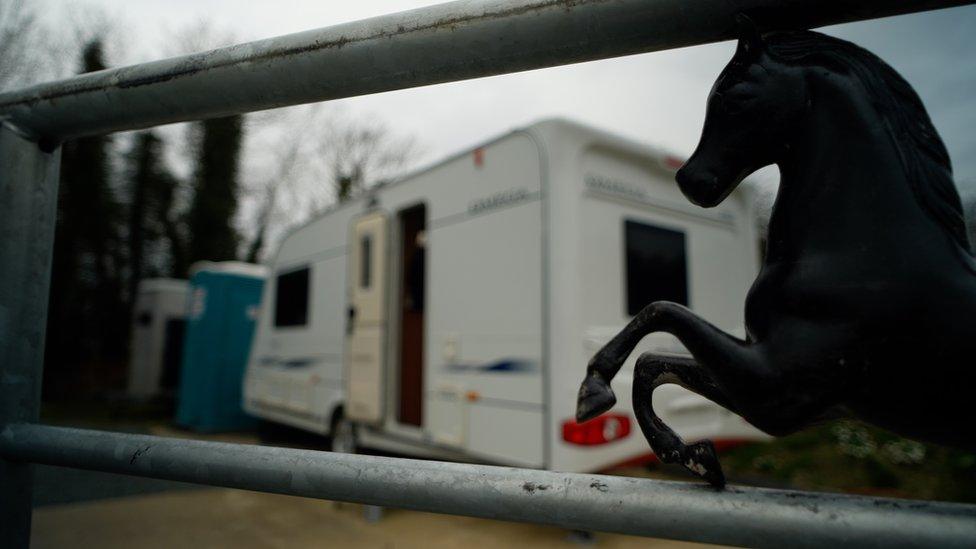
Travellers say they need more action and support to address the discrimination
"Travellers are 10 times more likely to experience discrimination in seeking work," said Prof Shepherd.
"Travellers are more than 22 times more likely than white Irish to experience discrimination in shops, pubs and restaurants."
The Irish government has said it has a range of policies to encourage the inclusion of Travellers in areas like education, employment, health and accommodation.
But Irish Travellers have said they need more action and support to address the discrimination creating a mental health crisis in their community.
Specific spending on Traveller mental health is €250,000 (£207,013) a year, and €12m (£9.9m) went towards Traveller accommodation in 2021.
"We're proud and we're dignified people," said Mags.
"We have solutions and we want you to listen to us. We aren't in it for money.
"We're in it to stay alive and keep our young kids alive."
You can watch Travellers: A Culture In Crisis on the BBC iPlayer and listen on BBC Sounds.
If you have been affected by any of the issues raised in this video, please visit the BBC Action Line here.
This article was updated on 26 July 2022 to link to the research referred to in it.
Related topics
- Published11 June 2021
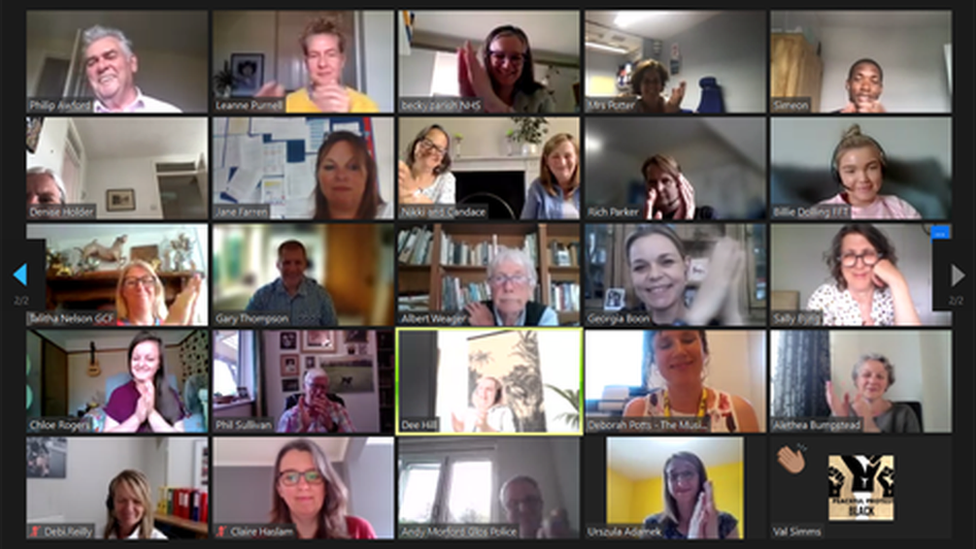
- Published3 July 2021
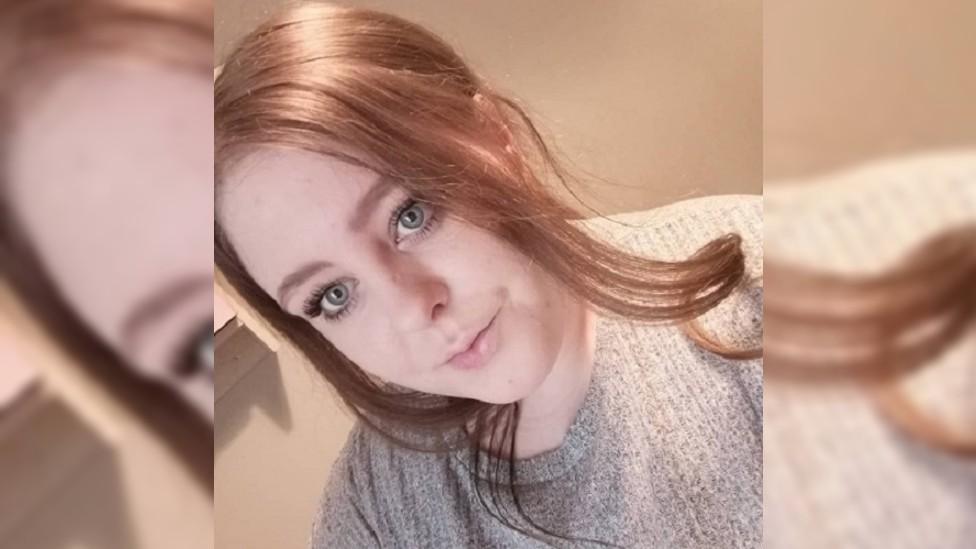
- Published17 February 2022
